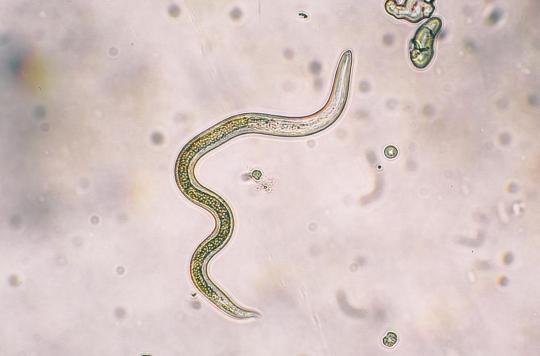The composition of the intestinal flora (intestinal microbiota) may influence the severity and recurrence of parasitic intestinal infections according to a new study. This opens the way to new methods of prevention.

More than a billion people around the world suffer from parasitic intestinal infections, mostly in developing countries, according to the WHO, but not only.
Researchers from the University of Washington School of Medicine report in a study that by manipulating the microbial populations of the intestinal flora (or microbiome), one could protect against intestinal parasites.
The importance of the constitution of the microbiota
“People who have contracted digestive parasitoses, or who have repeated parasitic infections, have a different microbiome than people who do not have intestinal parasitosis,” explains Makedonka Mitreva, associate professor of medicine and lead author of the study published in the journal Microbiome February 28, 2018.
Helminthiasis (infection with intestinal parasitic worms) are more common in the tropics or subtropics due to insufficient sanitation and favorable conditions for their development. The objective of their study was to establish the common patterns of the gut microbiota associated with a high risk of digestive parasitosis or, conversely, low in two remote geographic regions: West Africa and South Asia. East.
The role of inflammation
In a placebo-controlled trial, researchers identified 12 microorganisms in the gut flora that are associated with parasitic infections and one type of bacteria (Lachnospiracae) which would be associated with an absence of parasitosis.
In people without parasitosis, gut bacteria are often found which are associated with increased inflammation, an environment that would make it harder for helminths to take hold.
Researchers believe, in fact, that an inflammatory bacterial environment prevents the development of worms in the intestine because in infected people, we find a rather anti-inflammatory bacteria (Olsenella).
Protect yourself naturally
In the long term, the researchers wish to develop natural methods allowing to modify the composition of the intestinal microbiome in order to protect individuals from re-infection. The composition of the intestinal microbiota would also make it possible to predict which people are most likely to contract severe and chronic infections in order to optimize their prevention.
Ideally, they want to be able to offer foods that can alter the composition of the microbiome in order to cause a decrease in the rate of re-infection, and especially so that people can fight the infection on their own.

.










